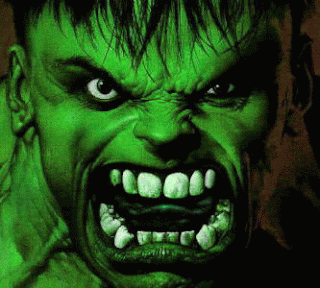I've now completed the read-through of this draft of "Goodbye Grammarian". After being in the trenches with this book, revising and fixing one scene after another for months, it was instructive to just READ the darned thing and see how it all hangs together.
Overall, it's not as bad as I thought it might be. Given the way I wrote it, I was concerned that the 50,000 foot view would reveal a clunky, patchwork narrative, with badly stitched together chunks. In fact, although there are problems, they aren't too bad. Let me summarize:
All of my above observations, of course, are based on my own reading of the book. My team of beta readers may agree or disagree with any of it. I'm looking forward to getting these revisions done and sending it off to them.
===== Feel free to comment on this or any other post.
Overall, it's not as bad as I thought it might be. Given the way I wrote it, I was concerned that the 50,000 foot view would reveal a clunky, patchwork narrative, with badly stitched together chunks. In fact, although there are problems, they aren't too bad. Let me summarize:
- There are plenty of typos and odd spelling, but that's a function of my typing - easily fixed.
- Repetitions of words and phrases popped up rather a lot. For example, my hero is "blasted backward" perhaps a dozen times. I read the phrase six or seven times in various chapters before it struck me that I didn't vary the description. In the months that separated the writing of one scene vs. another, I'd forgotten exactly how I'd phrased things. Easily fixed, although perhaps not so easily recognized by me. Fresh eyes will help on this.
- Repetitions of actions. The Grammarian gets beaten up several times in this book, sometimes sustaining terrible injuries. However, one of his powers is self-editing, so he's able to heal broken bones and torn muscles pretty quickly. As I read the book, I could see that I had him spending a lot of time doing this. I have a way to make this work in the book, but it'll be tricky to make it sound as funny on paper as it does in my head.
- A couple of out-of-order scenes stumbled the narrative. I'd moved a couple of scenes around, re-writing them to smooth the transitions. However, the characters possess knowledge in these scenes that they couldn't possibly have yet, or they recommend a course of action that the other actions in the book don't yet justify. Moderately easy to fix. I'll have to add at least one scene earlier on to build up a character, and change a few scene openings to frame the narrative flow to get everything to make sense.
- Walk-on characters. I have a few characters who are introduced, are part of a single scene, and are then never heard from again. I'm of two minds about this. I don't think that every character has to have a fully fleshed existence. With apologies to Rosecrans and Guildenstern, some minor characters are there to drive the plot forward, or to allow the reveal of character traits of the major characters. However, I think that some of these guys should get an appearance in a second scene, or more references in later scenes. This will help populate and codify the externalities of the Grammarian's contextual environment, Lexicon City.
- Supporting characters. The supporting characters are mostly OK. They get adequate screen time and their motivations are believable. The Grammarian interacts with them and they help to shape the events that propel the plot.
- No slow middle. There are a few infodumps here and there, but I can fix those by switching them to dialogue or simply cutting them and leaving the reader to wonder about a few things. The big thing, thought, is that in reading the book, I never got the feeling that the action slowed down and dragged in the middle, lunked up with a bunch of filler and chit-chat. Again, fresh eyes will let me know if I'm right in this perception.
- More problems with the last part of the book. I noticed that the read-through of the first 60% that the book seemed to be in good shape. In the last 40%, though, there were more significant things to be fixed. Why? The latter part of the book is where the tension rises, the action comes to a head, motivations are revealed and where loose ends of plot are woven together. It's simply harder to write a good ending that it is to write a good beginning. I've been writing faster lately, working on this book more consistently in the past six months. However, since I've been skipping around the book, filling in scenes based on the notes I made on the first draft, I don't think there's a relationship between the output pace and the quality of the work.
- There is one missing scene. I put in a placeholder note to myself in one chapter: "Insert fight scene with XXX. Have XXX reveal YYY in order to set up ZZZ. Big fight. Grammarian victorious, but weakened. XXX gets away." Somehow, I never got around to writing that scene. Oops. The rest of the book proceeded with the Grammarian weakened by the fight and knowing about YYY, with the plot ultimately flowing smoothly into the ZZZ scene. Moderately easy to fix.
- The villain's master plan makes sense. In the earlier drafts, and even in this one to an extent, the plot was propelled forward by disjointed actions and unconnected coincidences. All of these are now coherent, logical elements in a slowly unfolding plan. This is probably the best thing to come out of this read-through. The actions of the villain early on lead in a believable way to the next actions, which then have logical consequences, and so on. I need to re-write the ending to reveal this master plan to the reader. I trust that I'll be able to do this without resorting to a parlor-room reveal ala Hercule Poirot.
All of my above observations, of course, are based on my own reading of the book. My team of beta readers may agree or disagree with any of it. I'm looking forward to getting these revisions done and sending it off to them.
===== Feel free to comment on this or any other post.










